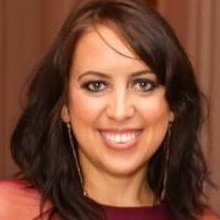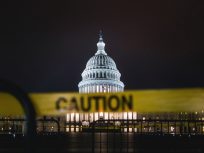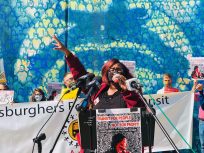 By Natasha Lycia Ora Bannan, a civil and human rights lawyer, and President of the National Lawyer’s Guild, the nation’s oldest progressive bar association.
By Natasha Lycia Ora Bannan, a civil and human rights lawyer, and President of the National Lawyer’s Guild, the nation’s oldest progressive bar association.
To criticize Fidel Castro or celebrate his death without recognizing that here are also millions who mourn him is to underestimate and misunderstand his legacy, not only to Cuba but for the world. It is to ignore the complexities of the Cuban reality and revolution, which is far from perfect, but that has represented hope and liberation and another vision of what is politically possible. It is the triumph of an alternative political and economic model in the face of the destructive nature of capitalism and the US model of democracy. To presume that Fidel was only how the United States and the self-exiled community has painted him as is to miss this history lesson. It loses sight of what a government that prioritizes economic and social rights looks like and one where healthcare, education, housing, basic food needs and social security are guaranteed rights.
For the solidarity movement in the United States and abroad, supporting the Cuban revolution has meant varied things, including supporting socialism as a viable political and economic governance model, supporting people’s democratic movements and choices on how they prioritize their social projects, and challenging the United States’ decades-old economic embargo (known as the blockade, or “bloqueo”) whose intent has been to cripple the Cuban economy by imposing international economic isolationism, and thus dismantle the Cuban people’s chosen form of government. For example, the National Lawyers Guild’s Cuba Subcommittee has long provided direct legal services related to restrictions on U.S. travel to Cuba, legal representation to free the Cuban 5 and for over 50 years has provided education and organizational work in support of normalizing U.S. relations with Cuba, even in the face of the embargo’s continued existence. The embargo, which even President Obama has called on Congress to lift, has wrecked tremendous damage and its extraterritorial restrictions on peaceful trade are widely viewed as a violation of both international law and of the domestic law of many nations.
For those that have supported the Cuban revolution and recognize Fidel as a freedom fighter, we must also look honestly at the deep failures of the revolution and the State, of which there are also many. All critiques and praise are true, and all can co-exist. The critiques are not just the ones that are on constant replay in mainstream media and by the same voices in Congress, which are centered on disagreement and outrage over Cuba’s political transition, which involved the nationalization of property, the redistribution of wealth and the socializing of private goods in order to create the possibility for public goods. However, there are also stories about violence and prisoners, about limited travel and even more limited food and income, and lingering poverty. There are also countless stories of separation of families, of risking life and health to flee poverty and of leaving behind one’s country, culture and loves.
However, what is often left out of the sharing of those real and painful stories is the role the United States government has played in sustaining economic and political policies that continue to encourage isolationism, dissuade economic growth and development and keep families separated. Some of those policies have slowly been lifted under Obama, however it is ultimately Congress that is responsible for lifting the embargo and Trump has signaled he would not support Congress doing so.
The embargo is not only about restricting access to goods, information and benefits for the Cuban people, but it serves as an informational blockade for Americans who do not receive varied information other than what our government determines we should know about Cuba – precisely the same policy the United States heavily criticizes Cuba for. Americans cannot freely travel to Cuba without a particular visa and approved purpose. We do not have balanced media coverage of Cuba, nor does our government respect the chosen form of government elected by the Cuban people. President Obama has clearly stated that the shift in U.S. policy towards Cuba maintains the same goals of advocating for “regime change,” just through different tactics. Americans believe that Cuba is a dictatorship because it has had the same elected leadership for decades, however it is not a self-elected or self-appointed government. Rather, the Cuban parliament has 1/3 times as many parliamentary members for a nation of 11 million than does ours for a nation of 330 million. People engage in their government and decision-making far before legislation reaches the Congress, which is a true democratic model of government – where an engaged and informed electorate participates actively in their government and where government creates as many channels as possible for that to happen in meaningful ways. Compare that to the U.S., where the two legitimate (and equally penalized) ways of participating in government is to vote every 2-4 years for a candidate whose policies you semi-support (with barely 50% voter turnout for national elections) or to protest in the streets (and risk being criminalized, harassed, abused or arrested) when those policies aren’t implemented.
The critiques of the revolution and Cuban state are many and are real. No government is without faults, and certainly all commit human rights violations. And when they do – and they will – we should not be silent. Human rights belong to all, regardless of the form of government chosen. However, the first ones to recognize and fight for those rights are not those of us abroad criticizing violations or abuses in our media or by supporting funding of opposition movements unconnected to actual policy changes, but by those who live it and resist and fight daily for a revolution that embraces all and leaves no one behind. The revolution didn’t just happen 57 years ago – it is defended and fought for every day by all of us, but especially by those in Cuba, who actively mold their revolution and government through the many means of actual democratic participation. If Fidel has shown us anything it is that Cuba is not a country where violence and oppression is accepted without struggle, and people there struggle every day to live in a country where their revolution evolves with them.





[…] as possible. One of the most insightful and thought-provoking pieces I’ve come across is a Law At The Margins article by Natasha Lycia Ora Bannan, a human rights advocate who has long worked on a number of human […]
[…] of the most insightful and thought-provoking pieces I’ve come across is a thought-provoking Law at the Margins article by Natasha Lycia Ora Bannan, a human rights advocate who has long worked on a number of human […]
[…] of the most insightful and thought-provoking pieces I’ve come across is a thought-provoking Law at the Margins article by Natasha Lycia Ora Bannan, a human rights advocate who has long worked on a number of human […]
[…] Current President, Natasha Lycia Ora Bannan: After the death of one of history’s most repugnant, gruesome, homicidal villains – Cuba’s Castro – the current NLG President posted a message, “For those that have supported the Cuban revolution and recognize Fidel as a freedom fighter.” She goes on to oooooo and ahhhhhh over Cuba’s Marxist hell-hole as a viable option for America. She also discusses the “wonderful” ways in which the National Lawyers Guild has effectively sided with Cuba’s murderous regime over the country’s persecuted people, because of “progress” or some other load of manipulative, fallacious word manure…. Blah, blah,blah. […]